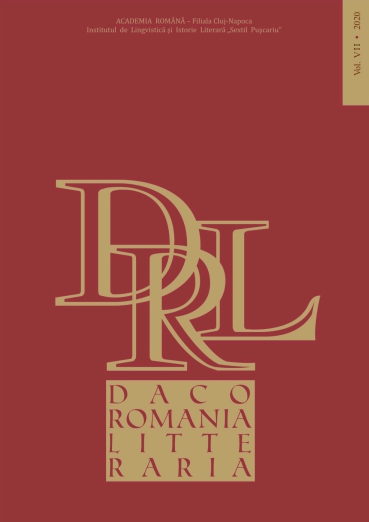THE POSITION OF THE DECADENT NOVEL WITHIN ROMANIAN FIN-DE-SIÈCLE LITERATURE
THE POSITION OF THE DECADENT NOVEL WITHIN ROMANIAN FIN-DE-SIÈCLE LITERATURE
Author(s): Angelo MitchieviciSubject(s): Language and Literature Studies, Romanian Literature, Theory of Literature
Published by: Academia Română, Filiala Cluj-Napoca
Keywords: novel; decadence; modernism; fin de siècle; intimacy;
Summary/Abstract: My approach considers the beginnings of establishing the novel as a literary genre in the context of Romanian literature and the critical reviews of the new genre and its specialization in a series of relevant subgenres from the novel with outlaws (Hajduks) to the decadent novel. We followed the evolution of the latter at the end of the 19th century and the growth of the first germs of modernity. Relying on David Weir's theory in Decadence and the Making of Modernism that decadentism is “a dynamics of transition” to Avant-garde and modernity and the mutagenic character of decadentism highlighted by many theorists from Marion Praz and A.E. Carter to Koenraad W. Swart and Renato Poggioli, I envisaged two case studies. In this regard, we analyzed by comparison the novel Exhausted Souls (1893) by Const. I.A. Notarra, partly a pastiche after a decadent-model novel, Á rebours by K.-J. Huysmans, and the novel Intimate (1892) by Traian Demetrescu to underline this transition to modernity beyond common themes and an aestheticizing perspective on emotions.
Journal: Dacoromania litteraria
- Issue Year: 7/2020
- Issue No: 1
- Page Range: 22-35
- Page Count: 14
- Language: English

